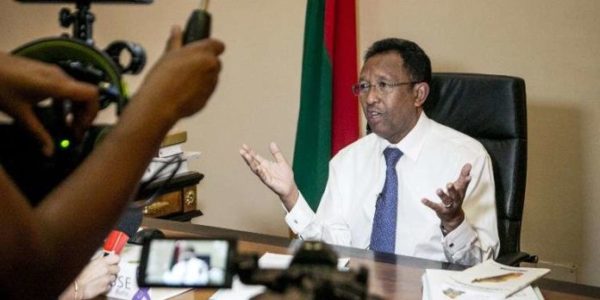Despite many difficulties, the forecasts of the World Bank and the International Monetary Fund are optimistic. As Hery Rajaonarimampianina’s term comes to an end, the next election may, however, create instability again.
By Cathy Naidoo, Johannesburg
Mixed. This is how one could describe the Malagasy economic situation. GDP growth reached 4.3 percent in 2017, a rate that remains “insufficient to meet Madagascar’s health and education needs,” as Jeune Afrique notes. Eight out of ten people live in conditions of extreme poverty and one in two children suffer from malnutrition in a country that, “despite all its natural resources, is still among the poorest in the world,” says the weekly.
But the Malagasy have some reasons to hope. Although weaker than expected, growth “remains above its 10-year average (until 2016),” says the World Bank in its latest “Economic Outlook”.
For the international financial institution, “Madagascar resists shocks”, and this is not trivial. Enawo, the most powerful tropical cyclone to hit the island since 2004, caused losses estimated at $ 400 million, or nearly 4% of national GDP. For its part, the drought has reduced rice production by 20% and forced the state to subsidize the public water and electricity company, Jirama, to the tune of $ 133 million, which has contributed to increase the country’s debt ratio.
The optimistic World Bank
However, “despite these difficulties, the forecasts call for positive economic growth in the medium term, which could reach 5.1% of GDP in 2018, before settling, on average, to 5.3% in 2019-2022” , says the World Bank. Growth should be driven by industry, tourism and banks. The World Bank is particularly interested in the expansion of public works and exports of textile products. The IMF emphasizes the role of public investment and the rebound of the agricultural sector, whose contribution to GDP should remain significant.
Finally, the government of Hery Rajaonarimampianina relies on international aid, which he managed to restore after a decade. Indeed, soon after Andry Rajoelina came to power, who proclaimed himself “in charge of the country’s affairs” in January 2009, Washington decided to cut off its non-humanitarian aid. At the time, international aid accounted for 70% of the country’s budget.
It was not until December 2016 that the international community – having obtained the organization of presidential elections three years earlier, decided to restore aid to the country. She pledged $ 10 billion in exchange for improved governance and a stronger fight against corruption.
Political instability
An improvement in the lives of Malagasy is possible, provided that political stability is preserved, warns the World Bank. Not a trivial matter, in a country marked by repeated political crises, and which is preparing to organize new elections.
Three candidates vie for the supreme magistracy. Hery Rajaonarimampianina, the outgoing president, believes in Jeune Afrique that his predecessors are the main culprits responsible for the crises that have shaken the country over the last fifteen years, and wants to convince the Malagasy of the interest to drive him back to let him continue his reforms. It can, for that, put forward the reinforcement of the institutions and the return of the lenders, a precondition for seeing the investors come back.
He will meet former president Marc Ravalomanana, forced to resign in 2009, after 7 years in power, as well as Andry Rajoelina, who then self-proclaimed president, with the consequences in terms of legitimacy that the ‘we know. Both also intend to persuade the Malagasy to trust them again.



